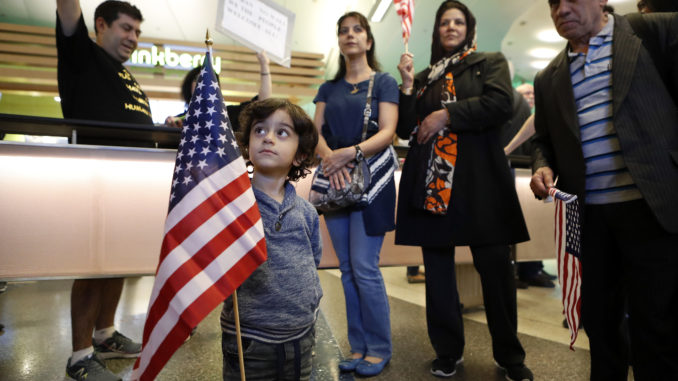
US Muslims are supposed to pray five times a day… and yet that’s not the case. Of course many of us don’t like to admit we don’t often pray, because doing so seems like admitting you’re not a “good” Muslim.
Intimate Questions
My friend Saleem recently got a random call from pollsters conducting an annual survey about American Muslims. The poll was entirely designed to reflect what a good Muslim is from a religiously orthodox perspective; being Muslim was defined – as per the questions – by how many times one goes to Mosque, attending Friday prayers, and.. you guessed it: do you do your daily 5 prayers: Always, Sometimes, Never.
The questions were been asked by a woman who was obviously non-Muslim: “Thank you Sir for taking the time to answer the questions of the survey. Are you Muslim?”
For her, she was just going through her checklist asking some of the most personal questions there can be about the most intimate aspect of one’s life: their faith, beliefs and how one handles all of them. Saleem was born in the Levant but came here as a child and prefers keeping his opinions to himself. But he decided to take a stand when the woman asked how often he did his daily prayers:
-Well, I haven’t felt like it in a long time.
-So, that’s sometimes or never?
-I’m going to go with never as that’s how it’s been since I left my parents home.
Reviving Old Traumas
It’s a fact of like that many American-born or America-raised Muslims don’t pray often, and if they do, it’s under pressure from parents and family.
The pollster had unwittingly hit a raw nerve with Saleem. His father used to ride him very hard – for years – about prayers and used to force him to go to mosque whenever possible for Friday or Eid prayers. This bred resentment. Saleem’s father, no dupe, knew that his son had no use for theology or the minutia of Islamic practice, but he couldn’t bring himself to let go.
Revenge being a dish best served cold, Saleem backed up a little bit. He asked the pollster to repeat the first question:
-Ma’am, what was the first question again: ‘Am I Muslim’?
-Yes, Sir
-Well, I’m a Muslim but not according to my father and the mosque, I don’t pray, I don’t fast, and I sure as hell am not going to Mecca before I retire in 30 years, but I’m a Muslim. I enjoy my drinks, and won’t object to a slice of bacon.
-Okay
-Anymore questions?
-Do you go to Friday prayers: Often, Sometimes or Never? (Long breath) Ma’am I don’t do my daily prayers, why would I go to Friday prayers.. I don’t enjoy hanging out with the nutcases at the mosque.
-So that’s Never?
-Yes, Neva!
Your Questions Are Ignorant!
Saleem’s southern twang came out of sheer frustration with the rigid poll questions. The poor pollster had now way to know that she was dealing with. Meanwhile, Saleem continued to exact his revenge on his father and with the entire orthodoxy by getting a bit prickly:
-Ma’am, I have to tell you, these questions are ignorant. They were either written by a fanatic, or someone who has no clue about how most Muslims in this country live. I’m offended by them. If I answer them truthfully, I’m considered non-Muslim, or some statistical fluke. Do you know Ma’am that most people will never admit they don’t pray, or attend mosque? Did you know that?
-Sir, am sorry you feel that way, am paid to ask the questions, I don’t write them, but I feel you.
-Yeah.. I’m sure you didn’t write them, you sound like a descent person.
-Thank you, do you want to continue or should we leave it here?
-Well what the hell, we’re already talking. Go ahead.
-How do you feel about Gay Marriage? Do you approve strongly, moderately or object moderately or object categorically?
-Well, I’m not for stoning them like the ones who wrote the questions. Yeah I’m for it, they should do whatever they want. Hell, I’d even go to mosque if there was a gay wedding there.
-So that’s Strongly approve?
-Yes, Strongly approve.
Coerced Practice Among US Muslims
By this point, Saleem’s years of hurt, shame and frustration seemed to subside. But many young American Muslims are going through a version of his teenage years in their own homes. Caught between parents who are themselves anxious about preserving the faith by passing it down to their children, and by the endless assaults of fanatics dominating American mosques on any liberality in practice of understanding of the faith.
Saleem’s reaction to the pollster was in fact his own emancipation from the years of shaming he had endured – like many are now – at the hands of the Islamist “faith police” running American Muslim institutions.
In my case, I made a point just like my own parents made with me, not to force religion on my children. I do my prayers and fast in front of them. I already taught them Al Fatiha, Mu’awidhat and the sort verses for prayer. They know how to do their ablutions. When prayer time comes sometimes they join, sometimes they don’t.
I was even pleasantly surprised by my daughter asking me questions about whether I thought she should or shouldn’t wear a hijab, an indirect way of telling me she’s now menstruating. I told her that she should decide for herself, and that I couldn’t care one way or the other, it’s a matter between her and God. But, my personal opinion is that virtue and piety aren’t a function of a piece of fabric, but rather good deeds, charity, and compassion for others.
